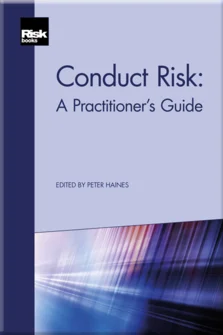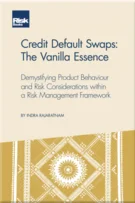Ethical Culture: What, Why and How?
Elizabeth Sheedy
Introduction
An Overview of Conduct Risk
How Does Conduct Risk Manifest and What Are Its Root Causes?
What Are the Driving Forces of and Who Owns Conduct Risk?
Scope and Ownership within the Business
Conduct Risk in Financial Services: Lessons from the Hospitality and Leisure Industry
Ethical Culture: What, Why and How?
Language and Conduct Risk: Limited Language – Big Blind Spots
An Anthropological Perspective on Conduct Risk
Identifying and Measuring Conduct Risk
Risk Appetite Setting and Modelling Conduct Risk
The Effect of Conduct Risk Losses on Reputation
Bringing the Customer Back to the Foreground: The End of Conduct Risk?
Managing Conduct Risk
Closing Comments on the Future of Conduct Risk
What makes people behave unethically and even unlawfully in the workplace? And to what extent is this driven by characteristics of the individual (bad apples) or the nature of the workplace itself (bad barrels)? Increasingly, research is highlighting the importance of the latter, although it is likely that both are at play.
These questions are particularly asked with reference to the financial services industry. Scandals relating to the mis-selling of financial products to consumers and market manipulation have been thoroughly documented (see, for example, Salz 2013). But a study by Labaton Sucharow (2015) of financial services professionals in the US and UK suggests that, if anything, unethical behaviour continues and may even be increasing. Twenty-three percent of respondents believed it likely that fellow employees have engaged in illegal or unethical activity in order to gain an edge (versus only 12% in 2012). In the UK, 32% of individuals said they would be likely to engage in insider trading to earn US$10 million if there was no chance of getting arrested, compared with 24% of respondents from the US.
Traditionally, economists have tried to understand criminal or immoral
Copyright Infopro Digital Limited. All rights reserved.
As outlined in our terms and conditions, https://www.infopro-digital.com/terms-and-conditions/subscriptions/ (point 2.4), printing is limited to a single copy.
If you would like to purchase additional rights please email info@risk.net
Copyright Infopro Digital Limited. All rights reserved.
You may share this content using our article tools. As outlined in our terms and conditions, https://www.infopro-digital.com/terms-and-conditions/subscriptions/ (clause 2.4), an Authorised User may only make one copy of the materials for their own personal use. You must also comply with the restrictions in clause 2.5.
If you would like to purchase additional rights please email info@risk.net










